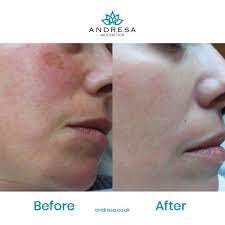5 Effective Home Remedies for Hyperpigmentation ?
5 Effective Home Remedies for Hyperpigmentation ?

Hyperpigmentation is a common skin condition where patches of skin become darker than the surrounding skin. It can be caused by many factors, including sun damage, hormonal changes, and skin injuries. Here are 5 effective home remedies for hyperpigmentation:
- Lemon Juice: Lemon juice is a natural bleaching agent that can help lighten hyperpigmentation. Apply freshly squeezed lemon juice to the affected area and leave it on for about 10 minutes before rinsing off with cool water. Repeat this process daily until you see improvement.
- Aloe Vera: Aloe vera has anti-inflammatory and soothing properties that can help reduce hyperpigmentation. Apply fresh aloe vera gel to the affected area and leave it on for 20–30 minutes before rinsing off with cool water. Repeat this process twice daily until you see improvement.
- Turmeric: Turmeric contains curcumin, a compound that has anti-inflammatory and antioxidant properties that can help reduce hyperpigmentation. Mix one teaspoon of turmeric powder with enough milk or water to form a paste. Apply the paste to the affected area and leave it on for 20–30 minutes before rinsing off with cool water. Repeat this process twice a week until you see improvement.
- Apple Cider Vinegar: Apple cider vinegar contains acetic acid, which can help lighten hyperpigmentation. Mix equal parts of apple cider vinegar and water and apply the mixture to the affected area with a cotton ball. Leave it on for a few minutes before rinsing off with cool water. Repeat this process daily until you see improvement.
- Green Tea: Green tea contains antioxidants that can help reduce hyperpigmentation. Brew a cup of green tea and let it cool. Soak a cotton ball in the tea and apply it to the affected area. Leave it on for 10–15 minutes before rinsing off with cool water. Repeat this process twice a day until you see improvement.
Note: It’s important to remember that natural remedies may take time to show results, and it’s always a good idea to consult with a dermatologist before trying any new treatments.
Comments
Post a Comment